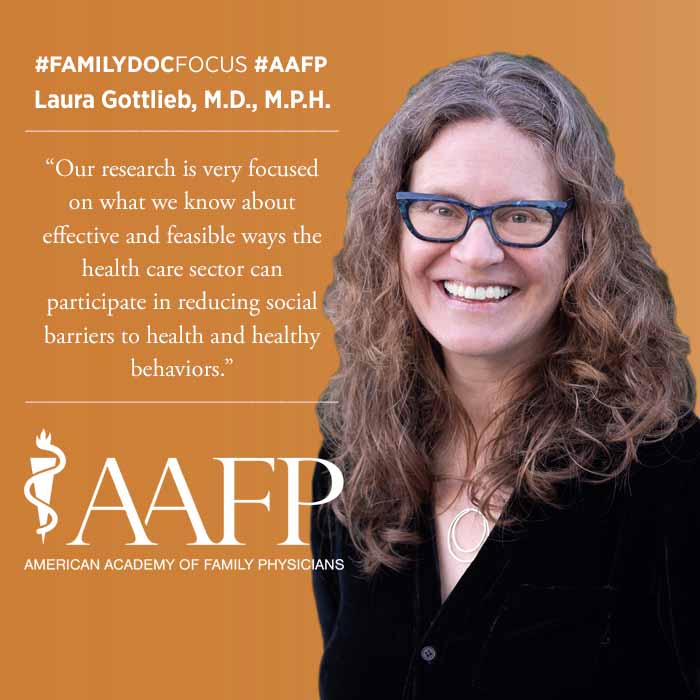FP Focused on Integrating Social, Medical Care Services
March 18, 2019 09:06 am David Mitchell – As a medical student at an institution that lacked a department of family medicine, Laura Gottlieb, M.D., M.P.H., didn't find a lot of support for her specialty choice.
"Many people at Harvard tried to talk me out of family medicine," Gottlieb said, "but it was the discipline that felt like it most accounted for the fact that health is shaped by family and community contexts, which made it the right one for me."
After graduating, Gottlieb moved on to the University of Washington, where she completed both her residency training and earned a master's degree in public health. Despite that training, in her first job at a federally qualified health center in Albuquerque, N.M., she felt unprepared to handle the array of social issues that affected her patients' health. As a National Health Service Corps scholar in that clinic, Gottlieb fulfilled her three-year scholar commitment by caring for a largely low-income, immigrant patient population.
"I felt like our medical care often ignored the socioeconomic barriers people were facing to making healthy choices," she said. "Worse, we sometimes exacerbated those challenges with our treatment plans."
Determined to start bridging social and medical care delivery, Gottlieb spent the next two years in the Robert Wood Johnson Foundation's Health & Society Scholars program, which aims to improve the nation's "capacity for research, leadership and policy change" to improve the many determinants of population health.

A decade later, her connection to the Robert Wood Johnson Foundation endures. She is associate director of the foundation's Evidence for Action grants program, which is based at the University of California, San Francisco, where she also is an associate professor of family and community medicine.
The Robert Wood Johnson Foundation and Kaiser Permanente also support the Social Interventions Research & Evaluation Network (SIREN). Gottlieb founded that initiative in 2016. SIREN's goal is to synthesize, disseminate and catalyze evidence focused on social care provided in health care delivery settings. The program's website includes a searchable resource library that highlights evidence and tools related to providing social care in medical settings. The network also supports meetings, grants and other collaborations to strengthen research and practice in the field.
"Many health care stakeholders struggle with how to provide strong social care and social services in busy primary care settings," said Gottlieb, who served as a member of the Family Medicine for America's Health cross-tactic team on health equity. "Our research is very focused on what we know about effective and feasible ways the health care sector can participate in reducing social barriers to health and healthy behaviors. We're trying to give researchers and practitioners the best possible evidence to inform what they do."
Gottlieb is a prolific researcher herself and serves as a principal investigator on multiple quantitative and qualitative projects examining the impacts of integrating social and medical care services.
"It's a growing field," she said. "It's a pretty hot topic."